Clifford Garstang's Blog, page 17
July 2, 2022
2022 Reading — June
In Love by Amy Bloom is a memoir about the end of Bloom’s husband’s life in an “accompanied suicide.” Married in 2007 after leaving other partners, Bloom and her husband Brian were mostly very happy, but eventually they both noticed worrisome signs that resulted in a diagnosis of early onset Alzheimer’s Disease. In 2019, it got so bad that they explored options for suicide, which in the US can be problematic, legally, eventually contracting for the services of a Swiss organization called Dignitas. The book details a lot of their life together and also the pain that the Alzheimer’s caused them. When they are finally approved by Dignitas (needing medical and psychological evaluations), they go to Zurich and Brian’s life is ended (in a process that reminded me having my dog put to sleep). Bloom returns home, plans a memorial, writes this book, and gets on with her life. It’s a beautifully told story about an experience you wouldn’t wish on anyone. It also raises a lot of questions and made for an interesting book club discussion.
Milkman by Anna Burns won the Man Booker Prize a couple of years ago and it’s no surprise. It’s an impressive achievement of voice and, at the same time, of social commentary. I’ve seen complaints about its lack of a plot, and it’s true that the central conflict could probably have been presented and resolved in a short story, but there is so much more to admire here than just the plot. The narrator is a young woman who has a boyfriend (or a “maybe-boyfriend”), but she is also being stalked by a “Renouncer”—a member of the IRA, presumably, opposed to the British occupation of Northern Ireland. Instantly, rumors abound that she is having an affair with the Renouncer, and no one will believe her denials. There are many wonderful side-plots as well, including her relationships with her boyfriend and her mother, also with her siblings, and with others in the community. I listened to the beautiful audiobook of this novel, which helped me get through it, but I also borrowed a copy from the library so I could also read some of it on the page. I’m not sure I would have liked it as much if I had only read it, because the pages are dense with type—long paragraphs, no dialogue breaks, syntax that on the page seems to go nowhere. But on the whole, I liked it very much.
The Storm is Upon Us: How QAnon Became a Movement, Cult, and Conspiracy Theory of Everything by Mike Rothschild seems to be a reasonably comprehensive overview of the origins of the bizarre Q movement. It lays out the timeline of Q, many of its weird claims, and the nature of its believers. We don’t learn definitively who Q is/was, although there is some speculation that has also appeared elsewhere. And, therefore, we don’t learn exactly WHY it came into existence, except that cults and conspiracies often draw people in, inexplicably. Near the end of the book, Rothschild suggests that after Q disappeared (has he?—there’s been a recent reappearance, apparently), some believers have gravitated to hate groups with which QAnon had some overlap, which makes a lot of sense. (The Jan. 6 Insurrection, after all, was a joint production of QAnon believers and some of those groups.) Anyway, I learned a lot from the book and recommend it if you’re curious about Q.
Hell of a Book by Jason Mott won the 2021 National Book Award for Fiction. It’s about a novelist who is on tour to promote his book, Hell of a Book, and he’s supposed to be working on his second novel. But he’s overwhelmed by it all and begins seeing The Kid, who is imaginary but insists he’s real, who seems to represent the tragic killing of countless young black men and boys, an apparition and problem that just won’t go away. But maybe The Kid is also the author as a child. Gradually we discover the novelist’s connection to The Kid and also learn about his own background that he has worked so hard to repress. We also eventually learn what his book is about, although he is reluctant to talk about it even during promotional interviews. Some of the characters are over-the-top offensive, such as the author’s agent and publicity consultant who give him ridiculous advice.
Hollows by Tommy Dean is a collection of flash fiction. Dean has become well known for his flash stories, publishing them frequently in literary magazines and teaching the subject. I confess that I am not a huge fan of the form these days, although I’ve written quite a few myself, and when reading a collection of them I find that they don’t stay with me. That said, the writing here is excellent and I recommend reading it slowly, maybe just a couple of pieces a day. They tend to be dark, focusing on troubled individuals in hard times, which is something that contributes to their power.
Admit This to No One by Leslie Pietrzyk is an enjoyable collection of linked short stories. They revolve–maybe orbit would be a better word–around an unlikable character who happens to be the Speaker of the House of Representatives, but the stories themselves are focused on some of the people around him–daughters from different marriages, his chief of staff, another staffer. Much of the book is set in Washington DC (like my own novel in stories, WHAT THE ZHANG BOYS KNOW) and because of the Speaker’s position, the stories are often about the power some people have over others and how that power is used. Terrific book.
June 29, 2022
I’ve Got Questions for Michael Bourne
Editor’s Note: This exchange is part of a series of brief interviews with emerging writers of recent or forthcoming books. If you enjoyed it, please visit other interviews in the I’ve Got Questions feature.
 Blithedale Canyon by Michael Bourne
Blithedale Canyon by Michael Bourne· What’s the title of your book? Fiction? Nonfiction? Poetry? Who is the publisher and what’s the publication date?
My novel is called Blithedale Canyon. It’s a work of literary fiction to be published June 30 by Regal House Publishing.
· In a couple of sentences, what’s the book about?
Blithedale Canyon is a story of love and other addictions set in a sun-kissed Northern California town rapidly shifting from hippie haven to moneyed paradise. The novel’s narrator, Trent Wolfer, has blown it in every way possible over and over and over. Fresh out of rehab, he moves back to live with his mother and her wealthy second husband, but soon he’s blowing it again, cutting out on his breaks at his dead-end job at a fast food joint to sneak airplane bottles of vodka and gin. Then one day he looks up from his register to see his closest friend from high school, now a radiant blonde single mother of two.
· What’s the book’s genre (for fiction and nonfiction) or primary style (for poetry)?
The book is literary fiction, but I’m hoping to sidestep the genre’s reputation for self-serious dourness. Blithedale Canyon is funny. Trent is funny. The novel takes on some serious subjects – addiction, criminal behavior, dysfunctional families, etc. – but I wanted readers to have a good time with it.
· What’s the nicest thing anyone has said about the book so far?
I got a very nice pre-publication review in Publishers Weekly, which likened Trent to “an older version of Holden Caulfield,” but the response that has gotten me the most excited so far came from Edan Lepucki, bestselling author of California and Woman No. 17. Here’s what she said:
“With this riveting novel, Michael Bourne gives us a vivid portrait of Northern California at the turn of the 21st century: the complicated signifiers of wealth, the crushing inevitability of gentrification, and that old California, part myth, part memory. A story of love, addiction, regret, and hope. I couldn’t put it down.”
I couldn’t write a better description of the book’s aims and concerns, and I’ve tried.
· What book or books is yours comparable to or a cross between? [Is your book like Moby Dick or maybe it’s more like Frankenstein meets Peter Pan?]
I never know how to answer this question. There’s that comparison to Catcher in the Rye, which makes some sense, though I never thought of it until I saw the Publishers Weekly review. So maybe “a Catcher in the Rye for the 21st century”? That has a nice ring to it, doesn’t it?
· Why this book? Why now?
We’re flooded with addiction narratives these days, but most strike me as fundamentally false. They either glamorize addiction, turning drug use into an act of rebellion, which is just ridiculous, or they sentimentalize it, playing up the schmaltzy scenes of redemption after the addict decides to quit. I wanted to go against all that, writing a book with humor and attitude that shows the messy reality of getting clean. As anyone who’s ever been an addict – or who’s had to live with one – can tell you, the decision to quit is the beginning, not the end, of the story. I wanted to write about a guy who wants to stop, who knows he needs to stop, but can’t, and I wanted to put readers inside that guy’s mind, so those who have never experienced it can understand how the addict’s mind works.
· Other than writing this book, what’s the best job you’ve ever had?
I was a newspaper reporter in small towns in California and Colorado in my twenties. I only did it for a few years before I went back to school and became a teacher, but man, I loved those jobs. You spend all day learning about things you know nothing about and then you go back to the office and write about them like you’re an expert – on deadline. Putting out a newspaper is a high wire act every day. Those jobs wore me out, but I was never, ever bored.
· What do you want readers to take away from the book?
As I say, mostly I want readers to have fun and sink into a good story. I avoid “message novels” like the plague and would never want to foist one on readers. But if there’s a message to Blithedale Canyon it’s that you have to separate the addict from the addiction. Trent Wolfer is a good guy who is also an addict who does bad things. You can’t excuse away the bad behavior – and the book is very clear about the consequences for his family and loved ones – but I do think you have to grant addicts their humanity apart from the substances they abuse.
· What food and/or music do you associate with the book?
Midway through the book, Trent is flipping through the dial on his car radio and hits Bruce Springsteen’s “Born in the U.S.A.” After that, he listens to the Springsteen album of the same name obsessively and it becomes a kind of soundtrack for the book. For Trent, a child of the 1980s, listening to Springsteen is like stepping into a warm bath – it soothes and calms him. But as I relistened to the album myself, I kept being blown away by what a great writer Springsteen is. “Born in the U.S.A.” got co-opted by the flag-waving America Firsters, but it’s an angry anthem about working class helplessness. And “I’m on Fire,” another song on that album – has there ever been a more haunting tune about obsessive love?
· What book(s) are you reading currently?
I’m reading Philipp Meyer’s first novel American Rust. His second novel The Son is one of my favorite books. American Rust doesn’t reach that level of brilliance, but it has a big, diverse set of characters, all of which are fully realized and fascinating to follow. I also listen to audiobooks, and right now I’m listening to Tina Brown’s The Palace Papers, about the British royal family. It’s a big, silly, sudsy gossipfest, just what I was hoping for.
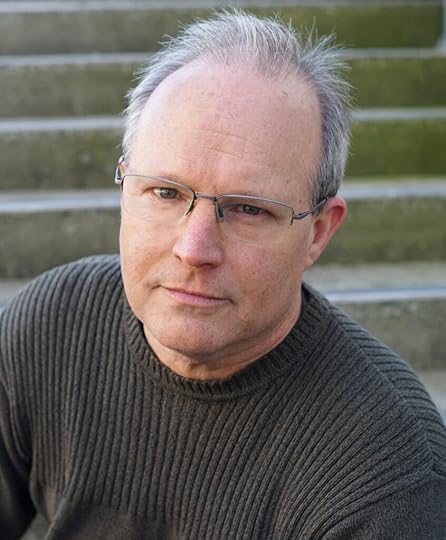 Michael Bourne
Michael BournePhoto by Tamea Burd Photography
Learn more about Michael on his website.
Follow him on Twitter and Goodreads.
Buy the book from the publisher (Regal House Publishing), Amazon, or Bookshop.org.
June 13, 2022
I’ve Got Questions for Alex Poppe
Editor’s Note: This exchange is part of a series of brief interviews with emerging writers of recent or forthcoming books. If you enjoyed it, please visit other interviews in the I’ve Got Questions feature.
 Duende by Alex PoppeWhat’s the title of your book? Fiction? Nonfiction? Poetry? Who is the publisher and what’s the publication date?
Duende by Alex PoppeWhat’s the title of your book? Fiction? Nonfiction? Poetry? Who is the publisher and what’s the publication date?Duende is a fictional, coming-of-age novella using flamenco as a metaphor for becoming. It is published by Regal House Publishing and debuts on June 14, 2022.
In a couple of sentences, what’s the book about?Sixteen-year-old Lava lives with her mother Lila and their boarder Cody, an Iraqi War vet, in Detroit’s scarred cityscape. One day her father, Jesse, who was convicted for drug addiction, returns from prison and pressures Lava for urine, so he can pass his drug tests. After an altercation, Jesse is reincarcerated and Lava is sent to live with Lila’s cousin, Lola, in Seville, where a missing girl has captured the community’s attention. Lola is a larger-than-life flamenco dancer who teaches Lava the language of flamenco dance. On the cusp of womanhood and caught between two worlds, Lava explores the voluptuousness inside her, exploring new modes of expression as she experiences first love, friendship, betrayal, uncovers family secrets, and ultimately defines her way to live.
What’s the book’s genre (for fiction and nonfiction) or primary style (for poetry)?Literary fiction, coming-of-age fiction.
What’s the nicest thing anyone has said about the book so far?“Duende reads like Alex Poppe smashed a stained-glass template of the coming-of-age form, then arranged the shards into a brilliant mosaic. It’s a spellbinding, unpredictable page-turner, but it is first and foremost an undeniable work of art. When an adolescent American girl in Spain dives headfirst into flamenco, a phantasmagoria of uncompromising truths is churned up, but she refuses to turn back in her pursuit of agency.”—Don De Grazia, American Skin
What book or books is yours comparable to or a cross between? [Is your book like Moby Dick or maybe it’s more like Frankenstein meets Peter Pan?]Duende could share shelf-space with The Vanishing Half because both are coming-of-age stories of identity, relationship, and the search for family truths. However, the use of flamenco as a metaphor for becoming makes Duende unique. Also, the prose in Duende is lyrical.
Why this book? Why now?I worked with youths for many years, and I am fascinated by how adolescent girls develop their sense of identity and self-respect in cultures that devalue them or usurp their agency. Adolescence is a tumultuous time for women; our bodies are revolting, our physical maturity may sprint past our emotional maturity, leaving us ill-equipped to process the wrong kind of attention from males intoxicated on privilege. The denigration amplifies when adolescent girls are not white: a 2021 study by the American Psychological Association shows that Black teens are disciplined in school more harshly than white teens. This same inequity exists in how unsolved rape, murder, and missing person cases are pursued. So often, cases of missing girls fade from the public’s attention, especially if the victims are not white, and the perpetrators remain at large to re-offend. Lava is mixed race, which is subtly stated in the story.
The missing girls on the periphery of Lava’s attention add to her feeling of dislocation and dis-ease. Some of us grow up feeling dislocated in our birth families. I wanted to explore how a character soothes dis-ease and how we create families from the people with whom we feel kinship.
Other than writing this book, what’s the best job you’ve ever had?I really enjoyed my life as an actor in New York, and after, my time abroad, teaching and volunteering in the humanitarian aid sector. I am very blessed to have taught in post-conflict zones such as the West Bank and northern Iraq, and to have trained teachers for the Ministry of Higher Education in Baghdad and for the US Department of State in Panama. These experiences helped me understand privilege, hegemonic legacy, and the myth of American exceptionalism.
What do you want readers to take away from the book?Duende started out as a dystopian thriller set in the urban blight of early twenty-first century Detroit. Then, I toyed with telling a PTSD, Iraq War veteran story, which resulted in Cody’s character. I also wanted to explore the difficulties of restarting life, post-incarceration, which gave birth to Jesse’s character. I’d like the reader to have conversations about these issues to elevate them, as well as the issue of femicide, to the forefront of cultural attention. I also hope readers get curious about flamenco and investigate the artform. Great flamenco artists include Sara Baras and Rocío Molina, whose work I studied to write this novella.
What food and/or music do you associate with the book?Definitely flamenco music, red wine from Cadiz, and goat cheese.
What book(s) are you reading currently?I am almost finished with Love, Africa by Jeffrey Gettleman and about a third through True Biz by Sara Novic.
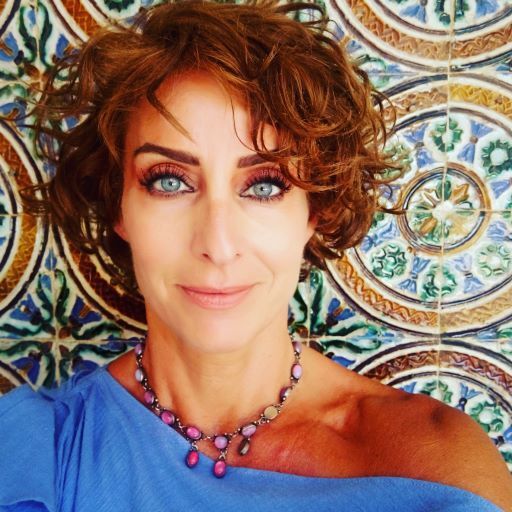 Alex Poppe
Alex PoppeLearn more about Alex on her website.
Buy the book from the publisher (Regal House Publishing), Amazon, or Bookshop.org.
June 6, 2022
I’ve Got Questions for Shirley Reva Vernick
Editor’s Note: This exchange is part of a series of brief interviews with emerging writers of recent or forthcoming books. If you enjoyed it, please visit other interviews in the I’ve Got Questions feature.
 The Sky We Shared by Shirley Reva VernickWhat’s the title of your book? Fiction? Nonfiction? Poetry? Who is the publisher and what’s the publication date?
The Sky We Shared by Shirley Reva VernickWhat’s the title of your book? Fiction? Nonfiction? Poetry? Who is the publisher and what’s the publication date?My novel is The Sky We Shared, Lee & Low Books, June 7, 2022.
In a couple of sentences, what’s the book about?Based on a true story, The Sky We Shared follows Nellie and Tamiko, two girls on opposite sides of the world, on opposite sides of World War II, whose lives become inextricably linked through a shared tragedy. They learn that hatred can’t cure their losses, but hope and resilience can help heal them.
What’s the book’s genre (for fiction and nonfiction) or primary style (for poetry)?This is an historical novel geared for middle-grade and early YA readers.
What’s the nicest thing anyone has said about the book so far?“Combining rich historical detail and urgent emotional drama, Vernick has created a unique and powerful coming-of-age story set against a complex and little-known chapter in America’s war with Japan.”
––Robert Sharenow, Emmy-winning producer and Sydney Taylor Award-winning author of The Berlin Boxing Club
What book or books is yours comparable to or a cross between? [Is your book like Moby Dick or maybe it’s more like Frankenstein meets Peter Pan?]The Sky We Shared is part Huckleberry Finn, part The War Outside (Monica Hesse), and a touch of The Things They Carried (Tim O’Brien).
Why this book? Why now?Intolerance is rampant in our country and in the wider world. I wanted to write a compellingly entertaining story, based on true events, that would illustrate the dangers of this.
Other than writing this book, what’s the best job you’ve ever had?I mentor aspiring novelists who are currently serving prison sentences. These individuals are motivated to tell stories that can both captivate and inspire future readers, and it’s an honor to be part of their process.
What do you want readers to take away from the book?I hope readers will understand that propaganda ≠ objective facts, that the truth is always worth learning (although not always fully discoverable), and that individuals can’t be understood simply on the basis of their nationality, race or other pigeonholing factors.
What food and/or music do you associate with the book?Since there were food scarcities during the time The Sky We Shared takes place, I think of ersatz foods, like pies without flour and meat dishes without meat. For music, I hear the Andrews Sisters, Duke Ellington, Cole Porter and others of that era.
What book(s) are you reading currently?I like to alternate between fiction and nonfiction. Currently, I’m reading the novel The World Before Us by Aislinn Hunter. Next up is the science book The Soul of an Octopus – A Surprising Exploration into the Wonder of Consciousness.
 Shirley Reva Vernick
Shirley Reva VernickLearn more about Shirley at her website.
Follow her on Facebook, Twitter, and Instagram.
Buy the book from the publisher or at Bookshop.org or Amazon.com
June 1, 2022
I’ve Got Questions for Karla Huebner
Editor’s Note: This exchange is part of a series of brief interviews with emerging writers of recent or forthcoming books. If you enjoyed it, please visit other interviews in the I’ve Got Questions feature.
 In Search of the Magic Theater by Karla HuebnerWhat’s the title of your book? Fiction? Nonfiction? Poetry? Who is the publisher and what’s the publication date?
In Search of the Magic Theater by Karla HuebnerWhat’s the title of your book? Fiction? Nonfiction? Poetry? Who is the publisher and what’s the publication date?The title is In Search of the Magic Theater, and it’s a novel coming out from Regal House Publishing on June 1, 2022.
In a couple of sentences, what’s the book about?This is the story of two women—fortyish Kari and twentyish Sarah—both residing with Sarah’s retired aunt Joan. Generational tensions, artistic collaborations, and even a romance steeped in Greek myth ensue as the two women pursue their very different paths in theater and music. Kari is newly single and reinventing her life, while Sarah struggles with what parents, mentors, and musical collaborators represent for her.
What’s the book’s genre (for fiction and nonfiction) or primary style (for poetry)?I think we could call it literary fiction, but it could also fit in women’s fiction and book club fiction.
What’s the nicest thing anyone has said about the book so far?All my blurb contributors have given lovely comments that focus on what the novel does. For example, Gabriella West has said its “meditation on repression, instinct, and the creative drive is fresh and timeless” and Julie Wittes Schlack notes that it “explores the tension between control and surrender, reason and ecstasy, dreaming and choosing.” I’m very much looking forward to seeing what other readers think!
What book or books is yours comparable to or a cross between? [Is your book like Moby Dick or maybe it’s more like Frankenstein meets Peter Pan?]This is a novel inspired by Hermann Hesse’s classic Steppenwolf, and it adopts some of that novel’s structure, so—contrary to recent fashion—it does not begin with a bang. In the early stages of imagining it, I also had Margaret Atwood’s Lady Oracle in mind, but I’m not sure one would find strong similarities to Lady Oracle in the finished novel beyond that one protagonist is a writer who leaves her husband. Ultimately, I think it has much in common with Robertson Davies’s The Lyre of Orpheus—lots of music and theater plus a talented young woman who’s not always easy to be around.
Why this book? Why now?Why any novel at any particular time? In 2022, which in many ways is not looking vastly better than 2021, I hope that readers will find this book simultaneously serious and lighthearted. It doesn’t pretend that life is always fun or that climate crisis doesn’t loom, but I hope it’s fun to read and even at times humorous.
Other than writing this book, what’s the best job you’ve ever had?Being a fiction writer has always been top of the list, but being an art history professor specializing in Czech surrealism, not to mention working in theater years ago, come next in line.
What do you want readers to take away from the book?I’d like readers to come away with a sense of wonder and joy at the possibilities life affords us. While those possibilities are not equally distributed to everyone, and some people have relatively few options, it’s important for us to make the most of our talents and abilities and to be open to the unexpected—to accept love and friendship when they are offered, and be willing to try new things while still valuing the old and familiar.
What food and/or music do you associate with the book?As far as food, I’m afraid mainly the frozen peas that Kari uses to soothe her feet after accidentally dropping the glass recycling on them! Musically, however, there’s just such a wealth, because music is a huge theme in this book. Sarah, one of the two narrators, is a classical cellist; Kari, the other narrator, listens to folk music among other kinds. The male characters are almost all musicians and their musical interests include jazz, progressive rock, and many other forms in addition to western classical music. I listen to a wide range of kinds of music and enjoyed bestowing many of them on my characters.
What book(s) are you reading currently?As a 2022 Debut novelist, this year I’m making a particular effort to read and review both other debut novels and other novels by Regal House authors. I recently finished Disorientation, by Elaine Hsieh Chou, and The Tobacco Wives, by Adele Myers, both of which I enjoyed very much. I just began Portrait of a Thief, by Grace D. Li, and have a crazy number titles awaiting me. I’m afraid I’m terribly behind in writing up the reviews, alas.
 Karla Huebner
Karla HuebnerLearn more about Karla on her website and blog.
Follow her on Facebook, Instagram, and Goodreads.
Buy the book from the publisher (Regal House Publishing) or Bookshop.org.
May 31, 2022
2022 Reading — May
 The Midnight Library
The Midnight LibraryThe Midnight Library by Matt Haig is overly sentimental. Spoiler alert—if you might want to read this book, stop reading this review now. It begins interestingly enough, as a depressed young woman in England finds life weighing heavily upon her—the last straw is the death of her cat—and she decides to take her own life. She lapses into unconsciousness and finds herself not dead but in The Midnight Library with Mrs. Elm, who had been her school librarian. She is instructed first to review her Book of Regrets, which is large, and then choose a regret that she’d like to alter. The result is a series of slides into various parallel lives. Some lives go better than others (rock star, Olympic swimmer and motivational speaker, arctic scientist), but eventually the reader can see that she’ll learn some important life lessons from this experience and choose to be a better person in her original life. A little heavy-handed sermonizing for my taste. It’s one thing to have an agenda for combatting climate change or racism, and it’s another to lecture your readers that you should do a better job of living your life. I confess that the book was sufficiently entertaining that I plowed through it, though, so you could do worse.
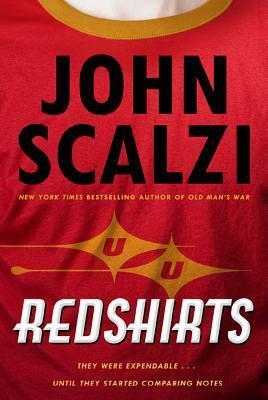 Redshirts
RedshirtsRedshirts by John Scalzi is a fun read. I might describe it as meta-science fiction, because it begins on a starship several centuries in the future and it feels at first like a Star Trek rip-off. Eventually though, some of the new members of the crew realize that there is a very high death rate among them, which, together with the title, reminds us that on Star Trek the crew members who wore the red shirts were most often the people who die from strange extra-terrestrial deaths. That realization causes them to put their heads together to figure out why that is, and eventually they learn that they are actually characters on a bad science-fiction TV program from the early 21st century that is, in fact, a Star Trek rip-off. But they feel like very real people, not fictional characters, and they don’t want to die, so they take action. All of which was fun to read, but it felt as though the author didn’t quite know how to end the book, and so it doesn’t really end.
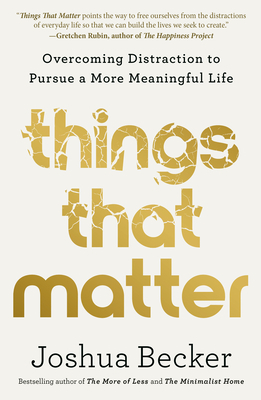 Things That Matter
Things That MatterThings That Matter by Joshua Becker is a book about removing distractions from your larger purpose, whatever that might be. Becker is known for his Decluttering movement—books, a blog, a course that I’ve taken—and for me this is a logical next step. Partly this is true because I have not yet succeeded in getting much decluttering done—a project from which I’ve allowed myself to be distracted—but I really want to. I also want to make sure I finish the book I’m currently working on, but I am terribly distracted by a lot of other things, including social media. There is the sense in the book that he’s talking more about serving others rather than oneself and one’s personal goals, but he allows for that as well. In any case, I hope my writing isn’t just for myself anyway. The purchase of the book included a 4-week course with Becker on YouTube, so I’ve watched that as well, and it’s interesting to hear him talk about the book’s content. I don’t feel as though most of the distractions he’s discussing really concern me much, but the last one—technology—absolutely does. I waste so much time on social media, among other online distractions, that I really must find a way to bring that under control, and he has some good suggestions for that.
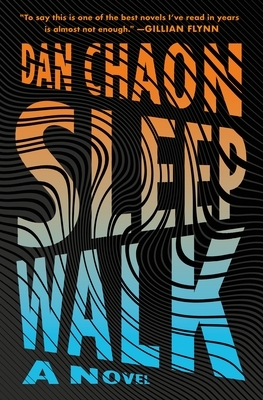 Sleepwalk
SleepwalkSleepwalk by Dan Chaon is a book I’ve reviewed for the New York Journal of Books. It’s a dystopian tale that sneaks up on you. The main character, sometimes going by the name of Billy, seems normal, at first, if somewhat nomadic in his outfitted RV. But as the miles go by, and he performs tasks for his employer, we realize that not only is Billy not just a nomad, but the world isn’t the same world we currently live in. Or maybe it is, but things have gotten a whole lot worse. Billy is contacted mysteriously by a voice named Cammie, who claims she is his offspring, in the sense that she was conceived using sperm that he donated to a sperm bank when he was a young man. She’s in danger and so is he, she claims, and that begins the epic journey that drives the rest of the book. Here’s my review.
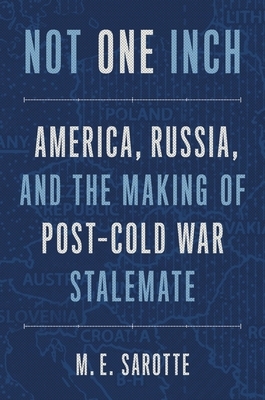 Not One Inch
Not One InchNot One Inch: America, Russia, and the Making of Post Cold-War Stalemate by M. E. Sarotte is a detailed—excruciatingly detailed—account of tension between the US and the Soviet Union (and then Russia, after the USSR’s collapse) over NATO expansion during the administrations of George H.W. Bush and Bill Clinton. Apart from the detail—so many conversations are repeated almost as if she had been in the room—it is extremely interesting to learn more about the personalities of the main players in these discussions. Because Bill Clinton was president when expansion finally took place, it is especially interesting to hear about the evolution of his initially warm relationship with Boris Yeltsin (after the dissolution of the Soviet Union). It’s also interesting to read about the various options that were considered along with attempts to placate Russia while still achieving expansionist goals. Sarotte concludes, looking back, that “we could have done better,” but that doesn’t seem terribly helpful. Expansion served its purpose of keeping the peace in Europe. Or did it light a fire under Putin that has now brought us to his war in Ukraine? I don’t think it’s possible to know for sure.
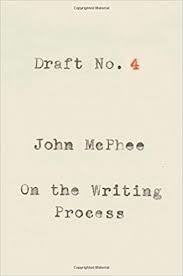 Draft No. 4
Draft No. 4Draft No. 4: On the Writing Process by John McPhee is a collection of craft essays that are aimed primarily at writers of long-form non-fiction pieces of the kind that McPhee writes, but the structural and process tips could be of benefit to fiction writers as well. There are a lot of glimpses behind the curtain here about working with William Shawn and other editors at The New Yorker, which makes it doubly interesting.
May 23, 2022
I’ve Got Questions for Marcie Roman
Editor’s Note: This exchange is part of a series of brief interviews with emerging writers of recent or forthcoming books. If you enjoyed it, please visit other interviews in the I’ve Got Questions feature.
 Journey to the Parallels by Marcie RomanWhat’s the title of your book? Fiction? Nonfiction? Poetry? Who is the publisher and what’s the publication date?
Journey to the Parallels by Marcie RomanWhat’s the title of your book? Fiction? Nonfiction? Poetry? Who is the publisher and what’s the publication date?Journey to the Parallels, winner of the Kraken Book Prize for Middle-Grade fiction, will be published on May 24, 2022 by Fitzroy Books, an imprint of Regal House Publishing.
In a couple of sentences, what’s the book about?Twelve-year-old Amber wants to fit in, but her eccentric mother keeps getting in the way. When Amber’s wish for a “normal” mother comes true, she suspects it’s not just her mother’s behavior that’s changed, but her actual mother. Amber’s search for answers leads to the discovery that her mother’s silly claim—that they can view a parallel world through the window of an old industrial building—might not be so silly after all. Amber and her younger brother Beetle journey into the other world to try to undo the havoc her wish created.
What’s the book’s genre (for fiction and nonfiction) or primary style (for poetry)?A fantasy adventure that shares a border with sci-fi.
What’s the nicest thing anyone has said about the book so far?I’ve loved hearing how much readers enjoy the immersive experience of the book—that sense of losing themselves in the story and characters.
On that note, Bookworm for Kids blogger Tonja Drecker wrote, “This book sweeps the reader up into a world, which hinges closely on reality and lets the fantasy trickle in…. It’s a great read for fun, for classrooms, for discussions, and more.”
What book or books is yours comparable to or a cross between? [Is your book like Moby Dick or maybe it’s more like Frankenstein meets Peter Pan?]I’ve heard it described it as A Wrinkle in Time meets Freaky Friday with a hint of Handmaid’s Tale for tweens. But I’ll add that it grew out of the creative compost of every book I loved growing up, from Judy Blume to Shel Silverstein (and there are probably some beloved T-Z authors that belong in there too).
Why this book? Why now?When I wrote the book in the spring of 2016, I had no idea how politically relevant it would be in 2022. The novel’s parallel world imagines a repressive society in which girls don’t play sports (in part because Title IX no longer exists) and single mothers have been placed under heightened surveillance. But, outside of the political aspects, the book is also a timeless story about a mother and daughter trying to navigate their evolving relationship.
Other than writing this book, what’s the best job you’ve ever had?As a freelancer in theater and film production, I’ve been lucky to have worked on many projects where I thought, “now this one’s the best!” But, really, it’s anytime I’ve been invited to join a team of creative people working to bring stories into the world.
What do you want readers to take away from the book?First and foremost, I hope they have an engaging reading experience where they get to question, wonder, and laugh a bit too! Thematically, I hope the book encourages readers to consider what it means to be an independent thinker, the value of keeping an open mind, and the impact of voting in local elections. Also, one of the main reasons I write is to be in conversation with books that have spoken to me, so if this book in anyway inspires a young reader to put their own stories into the world, that would be the most gratifying outcome.
What food and/or music do you associate with the book?Food: Vegetarian pasta for reasons that will become clear to anyone who reads the book (or who knows the author personally).
Music: I’ll go with what the characters might have been listening to at the time the book was written. The mother is probably singing along to Patti Smith and David Bowie (also not unlike the author). And for Amber, I’d say her playlist from that period probably includes Taylor Swift, Lady Gaga, and Bruno Mars.
What book(s) are you reading currently?I tend to read a lot of books simultaneously. For MG, I’ve been happily reading my way through recent Fitzroy publications, several of which have been mentioned in this blog! I’m also re-reading Charlotte’s Web at a very slow pace of just a few pages a day, which lets me experience White’s words in a new way (and because reading it always brings me joy). For adult fiction, I’ve just finished Free Love by Tessa Hadley. Also The School for Good Mothers by Jessamine Chan, which powerfully explores what it’s like to parent in a repressive society. In non-fiction, I’ve been caught up in Finding the Mother Tree by Suzanne Simard (a different sort of “parenting” tale). And for poetry, I’m excited to begin Ada Limón’s new collection, The Hurting Kind.
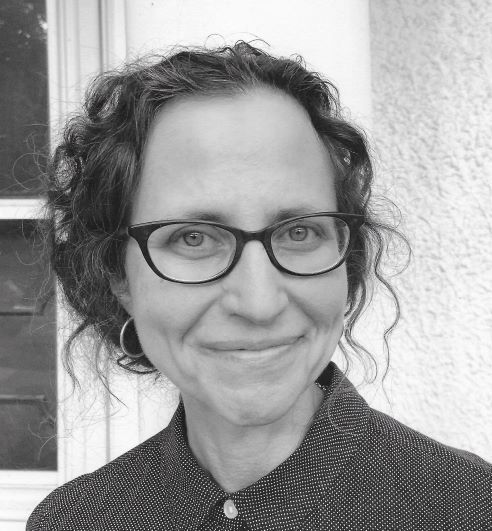 Marcie Roman
Marcie RomanLearn more about Marcie on her website.
Follow her on Facebook, Instagram, and LinkedIn.
Buy the book from the publisher (Regal House Publishing/Fitzroy Books), The Ivy Bookshop, Barnes & Noble, or Bookshop.org.
May 17, 2022
Happy Book(s) Birthday!
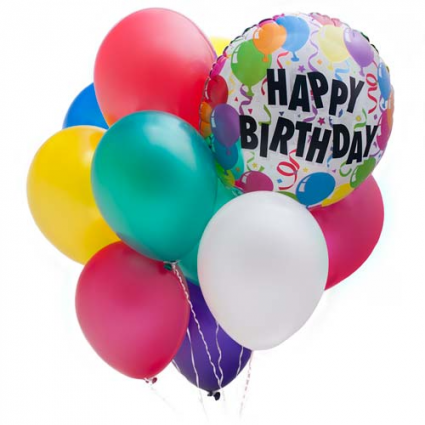
This month, I’m celebrating three birthdays! You could join me in this celebration by buying one or all of the books from the publishers (links below), your local independent bookstore, or your preferred online booksellers.

My most recent book, Oliver’s Travels, was published by Regal House Publishing on May 18, 2021. Happy First Birthday to Oliver’s Travels!

My latest collection of short fiction, House of the Ancients and Other Stories, was published by Press 53 on May 3, 2020.
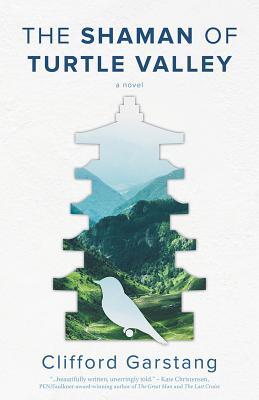
My debut novel, The Shaman of Turtle Valley, was published by Braddock Avenue Books on May 14, 2019.
(I wouldn’t want to leave my other books out, however: my first story collection, In an Uncharted Country, was published by Press 53 in October 2009, and they also published my award-winning novel in stories, What the Zhang Boys Know, in October 2012.)
In addition to the publishers, you can also ask your local bookstore to order the books, or you can shop online at Bookshop.org, Amazon.com, or Barnes & Noble.
If you’ve already read these books, you could do them a birthday favor by leaving a short review on Goodreads and/or Amazon.com. It truly does help them find other readers!
Thank you.
I’ve Got Questions for Raegen Pietrucha
Editor’s Note: This exchange is part of a series of brief interviews with emerging writers of recent or forthcoming books. If you enjoyed it, please visit other interviews in the I’ve Got Questions feature.
 Head of a GorgonWhat’s the title of your book? Fiction? Nonfiction? Poetry? Who is the publisher and what’s the publication date?
Head of a GorgonWhat’s the title of your book? Fiction? Nonfiction? Poetry? Who is the publisher and what’s the publication date?My debut full-length poetry collection, Head of a Gorgon, is coming out May 17 through Vegetarian Alcoholic Press.
In a couple of sentences, what’s the book about?Head of a Gorgon is a narrative in poems that reimagines the myth of Medusa, transporting this ancient tale of sexual violence into contemporary times and examining it through a survivor-centric, feminist lens. Via persona poems that enable readers to hear this story of trauma primarily and directly from a protagonist often sidelined or silenced in other tellings, this devastating collection brings the visceral physical and psychological experiences and effects of sexual violence out of the shadows and into the spotlight, revealing a path along which survivors might reimagine themselves within the societal structures that work against them.
What’s the book’s genre (for fiction and nonfiction) or primary style (for poetry)?Head of a Gorgon is a collection of poems, shorter than a novel in verse but along the lines of that sort of hybrid, that follows a narrative arc and incorporates a mix of free verse and modified, modernized formal verse.
What’s the nicest thing anyone has said about the book so far?I’m grateful for all the kind words folks have shared about my book thus far, including the generous blurbs that appear on the book’s back cover. But the comment that’s stood out the most thus far was actually about some poems from the book that I shared a while back when they first appeared in a literary journal. A former coworker of mine wrote to say, “I’ve never recognized something so deeply at my own center in someone else’s art than I just did in your poems. I’m breathless, and deeply grateful.” To have been able to form that kind of connection with another person through my work, to have been that mirror to their experience — that’s incredibly meaningful to me as an artist.
What book or books is yours comparable to or a cross between? [Is your book like Moby Dick or maybe it’s more like Frankenstein meets Peter Pan?]This book was influenced by a number of poets who are far more talented and accomplished than me, so while I wouldn’t say it’s comparable, I would just say I tried to distill some of my favorite elements from the following poets: Louise Gluck, Anne Carson, Jason Shinder, Larissa Szporluk, Marie Howe, Sharon Olds, Adrienne Rich, Sylvia Plath, Anne Sexton, and William Shakespeare. More specifically, if it were a recipe, it might be considered a mix of the authority of voice from Gluck’s Averno with the myth and form play of Carson’s Autobiography of Red as well as the insular feel of Shinder’s Stupid Hope, along with a few dashes of the other poets’ vibes I mentioned sprinkled throughout.
Why this book? Why now?In the wake of the #MeToo movement, I believe this specific work has never been more timely or critical — not only to those who have survived sexual violence but also to those who may be in a position to change the systems that perpetuate it.
Other than writing this book, what’s the best job you’ve ever had?I’ve had two jobs in my life, including my current job, where I basically got paid to read, and it is every bit as great as it sounds. I can leave this type of work at work, I’m not drained by it, and it affords me plenty of time and energy for my creative endeavors.
What do you want readers to take away from the book?My deepest hope is that this work reaches survivors of all genders and that they may be able to transform the tragic into some form of healing, activism, or both, should they so desire. The reason I create and share anything at all is because, after several years of struggle, I became able to live my life in a way that empowered me. I hope in reading my work, others realize they are not alone and never were — and that they can also overcome much adversity.
What food and/or music do you associate with the book?I created a whole playlist — not yet fully published — that can be followed on this dedicated Twitter thread, where the full compilation will eventually appear. Generally speaking, though, because the book covers a serious, dark subject, the music I associate with it is also dark and serious.
What book(s) are you reading currently?To be honest, I haven’t had all that much time to read since around November, when I started dedicating nearly all my free time outside work to promoting Head of a Gorgon. But the most recent books I’ve read include Give the Bard a Tetanus Shot by V.C. McCabe; History of Present Complaint by HLR; Flame to the Watering Hole by Jaime Alejandro Cruz; Employment by Gina Tron; Myth America: Poems in Collaboration by Carolina Hospital, Nicole Hospital-Median, Holly Inglesias, and Maureen Seaton; and Coughing Up Planets by Samantha Fain. And the very next book I’m planning to read, once I have time to come up for air, and one I am very much looking forward to is Good Morning to Everyone Except Men Who Name Their Dogs Zeus by Lannie Stabile.
 Raegen Pietrucha
Raegen PietruchaLearn more about Raegen on her website.
Follow her on Twitter and Instagram.
Buy the book from the publisher (Vegetarian Alcoholic Press).
May 16, 2022
I’ve Got Questions for Barbara Quick
Editor’s Note: This exchange is part of a series of brief interviews with emerging writers of recent or forthcoming books. If you enjoyed it, please visit other interviews in the I’ve Got Questions feature.
 What Disappears by Barbara QuickWhat’s the title of your book? Fiction? Nonfiction? Poetry? Who is the publisher and what’s the publication date?
What Disappears by Barbara QuickWhat’s the title of your book? Fiction? Nonfiction? Poetry? Who is the publisher and what’s the publication date?The title of my novel is What Disappears. It’s being published on May 17, 2022, by Regal House Publishing.
In a couple of sentences, what’s the book about?What Disappears is a multi-generational tale that begins in Tsarist Russia in the late 19th century and ends in Paris with the start of the First World War. One of two identical twins born to a Jewish family in dire political and financial straits, Zaneta is spirited out of an orphanage by a Catholic family from France. The other twin, Sonya—raised to believe her sister died at birth—has her life upended by the 1903 pogrom in Kishinev. They come face to face as 29-year-old identical strangers in the doorway of Anna Pavlova’s dressing-room when both get jobs in Paris with Sergei Diaghilev’s Ballets Russes. The resulting complicated relationship affects not only their lives but also the lives and fates of Sonya’s three daughters. Peopled by the greatest dancers, writers, artists, designers, and trendsetters of the Belle Époque, What Disappears explores the ways in which girls and women define their identity and search for meaning in a world that tries at every turn to hold them back.
What’s the book’s genre (for fiction and nonfiction) or primary style (for poetry)?This is not a genre novel, as such. None of my novels are. Because the story takes place in the past—and my fictional characters’ lives are interwoven with the lives of people who really lived—the book is, strictly speaking, historical fiction. But it aspires to be literary fiction—a novel replete with the emotional truth and nuanced complexity of—dare I say it?—literature. It both amused and saddened me, about a decade ago, to see that “literary fiction” is now categorized as a genre, in some bookstores, at least, right alongside Westerns and romance novels.
What’s the nicest thing anyone has said about the book so far?When the wonderful ballet memoirist Gavin Larsen read my novel in manuscript—and provided my publisher with a gorgeous jacket quote—I honestly felt, well, I can die now. Is it okay to quote her extensively here?
“With a dancer’s grace, agility and subtlety, Barbara Quick creates indelible scenes that unfold as her characters, both famous and fictional, discover the fragility of their deepest core values. I couldn’t turn the pages fast enough to keep up with my own racing mind! How do we use the artistic self to cover or costume or hide? In this author’s hands, twin-hood becomes a metaphor for the conflict between a stage persona and an offstage one. I shivered with recognition at her portrayal of the male ego, presumption, oblivion and rational thought being clouded by carnal or artistic desires. Any dancer or athlete will resonate with these characters’ use of physical work to staunch or avoid the excruciating reality of emotional pain. The historic figures in the book—Diaghilev, Nijinsky, Pavlova, Karsavina, and titans of the fashion world—become ever more real through the way Quick illustrates the turmoil and self-doubt of the artistic mind, regardless of the artist’s fame. Quick reveals symbolism threaded through these characters’ lives that sheds light on our own in the way only great literature can do. Are we all performing our way through life, “running from whatever demons we carry around inside us… straight into the arms of death”? By the end of this masterful work, we can indeed understand that when our inner and outer selves reconcile, what disappears is in fact what remains.” ~Gavin Larsen, author of Being a Ballerina: The Power and Perfection of a Dancing Life
Part of why this quote means so much to me is that, despite the years and years of assiduous research I did for What Disappears—and despite the fact that I have some dance training—I have never been a ballerina or lived inside that singular world. Getting this kind of validation from a writer who has lived and breathed that world, and also written so beautifully about it, felt like a kind of benediction.
What book or books is yours comparable to or a cross between? [Is your book like Moby Dick or maybe it’s more like Frankenstein meets Peter Pan?]I’m a great admirer of the British novelist Rose Tremain—now Dame Rose Tremain—who is known as a historical novelist who approaches her subjects “from unexpected angles.” That’s what I’m trying to reveal in both my poetry and my fiction: the glorious complexity of what it means to be alive.
 Courtesy of NASA
Courtesy of NASAThere’s a photograph that’s been going around social media, of NASA’s most up-to-date model of a human cell. One human cell—and it’s as intricate, gorgeous, and moving as a truly great work of art. Seeing this photo made me realize that art, at its best, is only an imitation of the beauty and complexity of the natural world.
That’s the novelist’s—and especially the poet’s—job, to pay attention. To look very closely. To reflect and scrutinize and empathize—and make connections that deliver those “Ah-ha!” moments of wisdom and relief. That change the way the reader looks at the world—and, at their best—crack the reader’s heart open. Making a reader laugh or cry is my greatest reward.
I recently came upon poet and novelist Mary Mackey’s 1986 New York Times bestselling novel, A Grand Passion, which also takes place in the world of ballet, although at a much later era than mine. It’s an amazing work of cultural and occupational ventriloquism. I think I like novels best that are written by poets—because poets walk many times around every word before giving it a place in their story. Margaret Atwood is also that kind of novelist.
And now I guess I’ve danced around your question, Cliff, instead of really answering it.
Why this book? Why now?Honestly, I think this novel chose its own birthdate. I started writing this story well over 40 years ago, when I was a 21-year-old poet ensconced in a borrowed cottage in rural West County Cork, Ireland. It was my first attempt at an extended piece of prose fiction. I called it “The Russian Winter.” It was based on stories I’d been able to wrest out of my taciturn maternal grandmother about her childhood as the daughter of a family of Jewish tailors in Kishinev, in Tsarist Russia. Her stories both intrigued and mystified me—especially the factoid that her mother, my great-grandmother, took the train twice a year to Paris to see the fashions.
The sketches in “The Russian Winter” unspooled smoothly enough—and a couple of scenes (such as Sonya’s kiss from Jascha, the pharmacist’s son, underneath a streetlamp in the snow) survived quite intact in the final version of my novel.
But it took me all these decades to find the complex, beautiful, and ultimately logical pathways that could explain those twice-a-year, unaffordable and daring trips to Paris taken by the character who took over from those stories about my great-grandmother.
I started working seriously on the novel again about 10 years ago, after three other novels of mine had been published and one of them, Vivaldi’s Virgins, had been translated into over a dozen languages—and I’d honed my craft to the point where I felt I might be able to do justice to this story, with its large cast of characters, set in an era of such great cultural importance: the Belle Époque in Paris. I wrote about the Russian flu pandemic of 1889 years before the flu pandemic of our present day. I wrote about the fight for women’s rights in France well before I knew that women’s rights in our country, in my lifetime, would once again be so obscenely under siege. And at the end of What Disappears, I wrote about the terrifying runup to the First World War. One of my characters, witnessing the patriotic mobilization in Paris, agonizes, “Why do all these people look so excited and happy? Don’t they see […] the months and perhaps even years of suffering that lie ahead, the young men who will murder and be murdered, the mutilated bodies, the grief that always follows in the wake of war?”
Why this book? Why now? Because this is exactly the time when this novel needed to be published. I can’t take credit for this. In all my ignorance, I would have felt perfectly happy if this novel, in whatever state it was in then, had been published sooner. I’m grateful that the novel made me wait!
Other than writing this book, what’s the best job you’ve ever had?Well, writing books has been my “job,” sometimes to my financial peril, since 1990, when my first novel, Northern Edge, was published and awarded the Discover: Great New Writers prize. (It took me a very long time after that to be, by anyone’s definition of the word, “discovered”!) It wasn’t an easy road—and I usually had some kind of editing job or journalism gig to help pay my rent and keep food on the table. My very favorite of these gigs was working as a writer and editor for a site called MyPrimeTime.com. Besides serving as a sort of eminence grise there—most everyone else at that bright-and-shiny dot-com was a Millennial—my bailiwick was to write a weekly column called “The Gender Dialogues.” They were sort of faux anthropological commentaries on the sources of human behavior, with a specific focus on the interactions between the sexes. Quite often when one of my columns was published, my colleagues greeted me at the office with a round of applause. (They also did that once when I showed up sporting a pair of tight leather pants.) They were a lovely, bright group of writers and programmers—and I’m still in touch with some of them today. I have a so-far unpublished book, one I’ve been keeping under wraps, called “Boardinghouse Reach: A Novel with Recipes,” which features most of those columns as the work of the (barely) fictional protagonist, a single mom running an international boardinghouse in the East Bay, trying to make ends meet.
What do you want readers to take away from the book?I’ve been very gratified to hear from a lot of early readers that they “couldn’t put the book down!” That’s what every novelist wants to hear, isn’t it? I want readers to come away from my novel—from all my novels—feeling as if they’ve been transported into another time and place and even into other people’s bodies, feeling without reservation the emotions of the characters, their struggles, their hopes, their small moments of victory. I want all my readers to have the pleasure, as I have had as a writer, of getting to be a time-traveler: of getting as close as anyone can get to actually experiencing what it’s like to be someone else. And I want them to find, as I have, resonance with their own hopes and dreams and struggles in the lives of the characters—both the fictional ones and the historical ones—who populate the pages of What Disappears.
What food and/or music do you associate with the book?I wrote a lot of my final draft of What Disappears while listening to Brahms’ Second Symphony. It has been my goal to write a novel that travels along a reader’s neural pathways with the swiftness and directness of music, straight to the heart. Music has always been an important part of my life, even though I’m not a musician. For the past 14 years, through my husband—who is a professional musician—I’ve had unusually close access to the San Francisco Symphony: he’s a member of the viola section, and I try to attend every program. Whenever Brahms’ Second Symphony is performed these days, I’m a soggy mess beneath my mask. I associate each of the instruments now with one of my characters. I know the piece ridiculously well. There’s a similarly vivid experience for me whenever I get to hear Stravinsky’s Rite of Spring. The so-called “Riot at the Rite” in 1913, when the ballet debuted in Paris, plays a pivotal role in my novel.
Food and cooking—and growing food—are big parts of my life. I find lots of my poems in the garden and the kitchen. Getting to hear Garrison Keillor reading my poem, “Conjuring Nana,” on The Writer’s Almanac last year, was one of the highlights of my career as a poet—really, the beginning of my “career” as a poet. Before last year, my poetry was only something I had done for my own emotional survival since the age of nine, and was very rarely a public thing. Now, all of a sudden, I find myself being a poet in the public eye.
My Nana’s chicken soup, not surprisingly, found its way into this novel—as well as my memories of the Russian borscht she made. There was always some delicious, salty condiment fermenting in her kitchen (and often around ours, too, after she’d spent time with us): dill pickles and sauerkraut, which don’t smell too great while they’re in progress but are so delicious by the time they make it to the table. My great-aunt Tillie’s rugelach—and the fog of powdered sugar in her kitchen while she made those supremely delicious, Old World cookies—also make an appearance in the scenes from Kishinev.
 (John Burgess/The Press Democrat)
(John Burgess/The Press Democrat)And the seduction scene in the Parisian bistro, when Paul Poiret is demonstrating the rituals of wine connoisseurship to Sonya, is modeled on the deep knowledge possessed by my husband, who is a vigneron as well as a violist. He has dedicated the 2021 vintage of our Pinot gris to my novel, with a special label designed to mirror the cover art. We’re going to pour it, where permitted, at all my upcoming in-person events.
What book(s) are you reading currently?I have so many writer friends whose books I’d like to mention here—too many! In the interest of fairness and honesty, I’m going to give you the titles of the actual books I have stacked up right now on my bedside table. It’s quite an eclectic collection! Deep Hanging Out: Wanderings and Wonderment in Native California by Malcolm Margolin. The Thrall’s Tale by Judith Lindbergh (whose next novel, “Pasture of Heaven,” is going to be published by Regal House). The latest collection of poems by the delightful George Bilgere: Central Air. My Current Name is Jackie Fromm, a privately published memoir by my late mother’s best friend, who just celebrated her 99th birthday. We Own the Forests by the poet Hans Børli (in a bi-lingual edition translated from the Norwegian by Louis A. Muinzer).
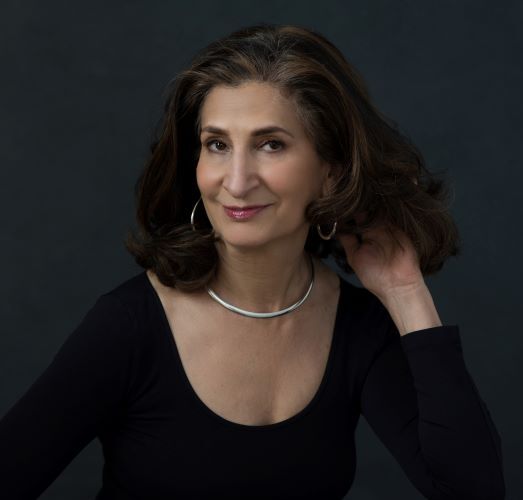 Barbara Quick, photo by Laurie Bell Bishop
Barbara Quick, photo by Laurie Bell BishopLearn more about Barbara on her website.
Follow her on Facebook and Twitter.
Buy the book from the publisher (Regal House Publishing) or on Bookshop.org.



